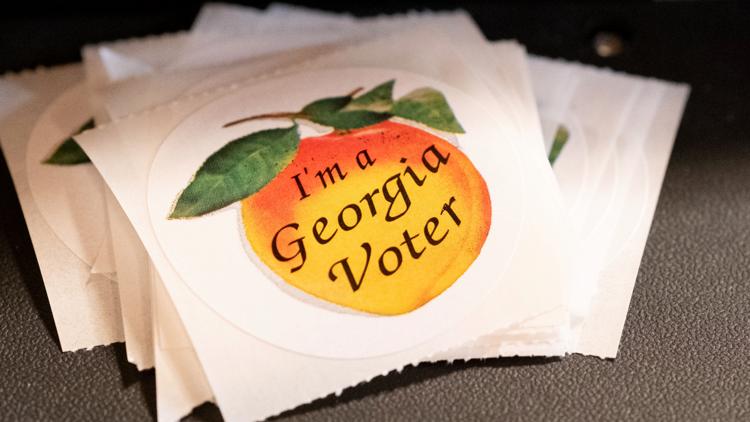Share this @internewscast.com

The Public Service Commission (PSC) in Georgia is responsible for setting rates for Georgia Power, among other duties. This November, two of its five seats are up for election.
ATLANTA — Early voting in Georgia is set to commence on Tuesday for the November elections, which primarily focus on municipal positions this year but also include two critical statewide races for the Public Service Commission (PSC) seats.
The PSC is Georgia’s regulatory body that determines rates for Georgia Power, among other tasks. The five-member commission hasn’t seen elections since 2022 owing to a legal challenge against the PSC election structure, which involves statewide voting rather than voting within the commissioners’ respective geographic districts, where they reside. This lawsuit did not succeed in changing the structure.
Besides the PSC elections, there will be municipal elections across the state for roles such as mayor and city council, along with some county votes on specific taxes.
The early voting period is open until October 31. For details on early voting locations, dates, and times, residents are advised to check their county elections website. The Georgia My Voter Page also provides this information along with a sample ballot to show what races voters can participate in this year.
Select metro Atlanta early voting information
Fulton County
Gwinnett County
DeKalb County
Cobb County
Clayton County
Henry County
Why are Georgians voting in 2025 for the PSC?
Georgia usually doesn’t have statewide elections in odd-numbered years, but these were pushed back after elections were delayed by a lawsuit that unsuccessfully challenged the statewide voting scheme as discriminatory to Black people. No Georgia Public Service Commission elections have been held since 2022 because of the lawsuit.
Republican Fitz Johnson was appointed to the commission in 2021 by Gov. Brian Kemp and has never faced voters. He was supposed to run for the last two years of his predecessor’s term in 2022. Instead, the District 3 winner can run again next year for a six-year term, after lawmakers rewrote the terms.
Republican Tim Echols was supposed to run for a six-year term in 2022. Instead, the District 2 winner will serve for five years, with the next election in 2030.
Johnson is running against Democrat Peter Hubbard, who won a primary runoff in July.
Echols is running against Democrat Alicia M. Johnson, who won her party’s nomination unopposed.
Copyright 2025 Associated Press. All rights reserved. This material may not be published, broadcast, rewritten, or redistributed.
















